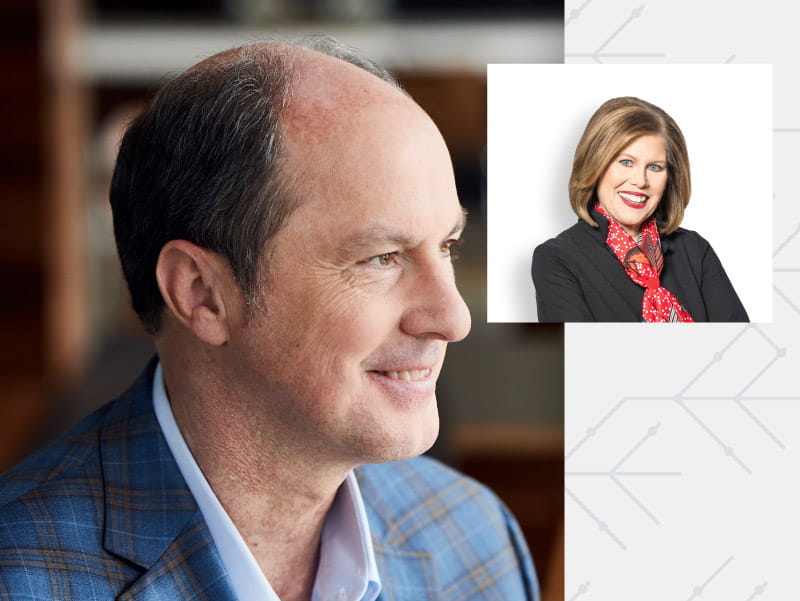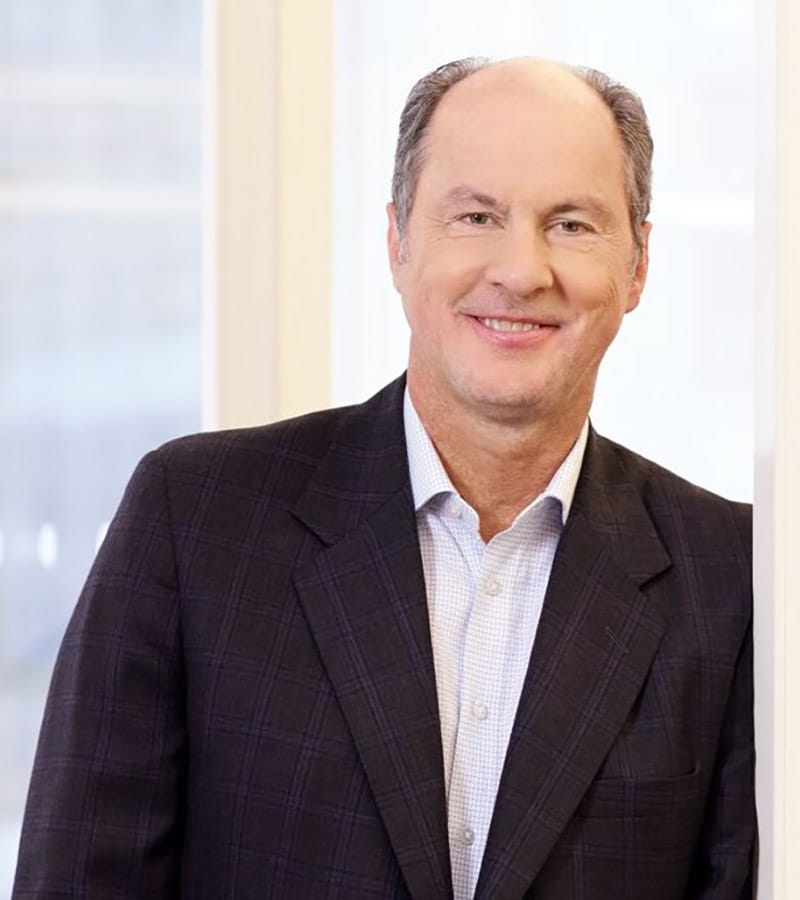Trying to change your body? Be nicer to yourself
By Nancy Brown, American Heart Association CEO

While running a weight loss study, Gary Foster asked a patient what she thought of the program.
"What I'm most grateful for," she said, "is teaching me a sense of self-compassion."
This intrigued Foster because self-compassion was a small part of their work.
The team primarily focused on measurable things, like body composition and metabolic rate. Researchers also tracked levels of hunger and depression.
In progress reports, patients were asked a series of adherence questions, such as how close they came to reaching their weekly goals for intake and activity. They also were asked, "What did you do to be kind to yourself this week?"
"When I had setbacks, I treated myself as I would a friend," she told Foster. "I wasn't the enemy. And that's so critical for weight loss."
Foster soon began encouraging all his patients to be nicer to themselves. Subsequent studies recommended positive self-talk. Then, just as quickly as it emerged, this theme faded. Not because he lost interest; because the people funding his work wanted him to target other things.
Those studies went so well that Foster continued to explore evidence-based approaches to wellness in the community setting. This passion is what brought him to WW (then known as Weight Watchers) in 2013.
Within a few years, he noticed a recurring theme from WW members. Or, rather, he noticed it again.
"What's in your head is as important as what's on your plate," Foster said. "It's how you think about yourself and it's how you think about the journey. It's those two things together. It's not particularly novel, but it's powerfully effective."
Since rediscovering this key to helping people make healthy changes, Foster has built on it. He's created a practical, science-based framework to keep anyone on track toward any goal.
This story is mostly about the message. Yet it's also about the messenger.
It's the story of a guy who set out to help others … and wound up discovering that the best way to do so is by showing them how to help themselves.
***
Foster remembers exactly when he first learned the joy of directly improving someone else's life.
It was in high school, while serving food to people who were homeless. The feeling it stirred in him was so profound that he sought more of it.
The pursuit led him to enter the seminary. And to coach youth basketball. It's even why he left the seminary; prayer time conflicted with other opportunities to directly help people.
"What drove me was more than a cathartic duty to serve," he said. "I felt a very palpable impact when I helped people. It sort of gave me 'inspiration juice.'"
Foster went from seminary to Duquesne University in Pittsburgh. He earned a degree in psychology – working in a prison psych ward along the way – but wasn't sure of what to do next.
A college adviser recommended he work with psychologists while trying to figure it out. That adviser also helped Foster return to his hometown of Philadelphia, landing him interviews at the University of Pennsylvania School of Medicine.
Neither job intrigued him much at the time. On a whim, Foster joined the team studying obesity.
Having never needed to lose weight, he wanted to understand what it was like. So he read the book "The Pain of Obesity," which delves into the emotional struggle of trying to shed pounds in the context of pervasive weight-based stigma. Then he began working with patients one-on-one and in groups.
He quickly developed deep empathy. Most of all, he found plenty of "inspiration juice."
***
As it turned out, Foster was in the right place at the right time.
The Penn team studying obesity boasted many leaders in the field, including Dr. Albert Stunkard, author of "The Pain of Obesity." These experts became his mentors, collaborators and friends.
Meanwhile, the field was about to take off. Bariatric surgery and other science-based, game-changing treatments were on the way.
The need for it all was about to take off, too.
Obesity rates in the U.S. have skyrocketed from about 12%-15% when his career began in the early 1990s to beyond 40% today.
***
Over the next decade, Foster oversaw many studies and published dozens of papers, establishing himself as a leading voice.
So when that woman raved about the power of self-compassion, something he'd hardly considered as part of the solution, Foster could've dismissed it as not fitting his research. Instead, he thought, "Boy, maybe we're not focused on the things that matter."
Foster began digging into the mental approach to taming obesity and liked what he found. Then came a new job and new priorities. For many years, his work revolved around crunching cold, hard numbers.
Then Foster got another job, the one at WW.
To immerse himself, he traveled the country, meeting with WW members and coaches.

He was looking for the sweet spot "at the intersection between what people want and what science can deliver." He found it in the importance of the mind in shaping the body. And as he absorbed this realization, he heard a distant bell clanging for the first time in years.
"It was like, 'Oh yeah, this isn't the first time I've heard that,'" Foster said.
Only this time he was in a position to do something about it.
***
Foster began collecting thoughts in need of reframing, then putting them in a new frame.
For instance, consider this paradox: People often say they won't be happy until they achieve a certain number on a scale. Yet research shows it's more difficult to reach the number on the scale if they're unhappy.
Foster's solution has a bit of a Zen vibe: "At the beginning of the journey, the more you value your body as it is – seeing it as something worth taking care of, something you want to be kind to and to nourish – the easier the journey gets."
Getting people to buy into such thoughts required debunking long-held myths, such as the notion that tough love shows strength and self-compassion shows weakness.
"Saying harsh things to yourself – things you wouldn't say out loud, let alone to another person – is demotivating," he said. "Remember, when you're saying those harsh things, that's you you're talking about! And you are your most important ally."
He eventually came up with seven pillars for lasting change:
- Embrace self-compassion
- Build helpful thinking styles
- Set goals and form habits
- Lean into your strengths
- Value your body
- Find your people
- Experience happiness and gratitude
Foster bolsters each pillar with simple, proven techniques. Examples: To increase gratitude, think of three good things in your life. To be more self-compassionate, try talking to yourself as if you were talking to a friend.
Here's a sample inner dialogue for someone trying to lose weight when they encounter a day that goes off-script: "Things happen. The key is not to let a big meal or a missed workout lead to a vicious cycle of negative thoughts that in turn lead to more missteps."
"It's inevitable that you will encounter setbacks," Foster said. "If you're self-critical and you don't have self-compassion, you won't do well. This is true everywhere, whether it's parenting, relationships or work productivity."
People hearing Foster present these ideas often asked where they could learn more. So he ended up writing a book about it. "The Shift – 7 Powerful Mindset Changes for Lasting Weight Loss" was published in late 2021.
***
While working on the manuscript, Foster began taking a closer look at his own mindset. He particularly targeted the connection between his diet and his health.
Since age 6, Foster has managed Type 1 diabetes. Anyone familiar with the condition understands what a chore that is. Hour by hour, year by year, he's monitored his blood sugar using whatever is the latest technology. Tools may make it easier, yet it remains a constant challenge.
At 40, he developed celiac disease. That meant even more lifestyle modifications and daily accommodations.
Like everyone else, Foster has good days and bad days watching what he eats. But it wasn't until writing the book that he gave himself credit for having been so successful for so long.
The bigger takeaway was that it gave him a new lens through which he could view those inevitable bad days. He looks at it with the pride of someone with a high winning percentage and the humility to recognize that he can't win them all. Then he consoles himself with compassionate self-talk.
"Instead of saying, 'My blood sugar is over 200 again today. What the heck? I've been at this for decades and I still can't get it right!,' now it's like, 'Hey, show some self-compassion. Yeah, my prediction was off, but I'm in the game. I can plan better next time.'"
So take it from Gary Foster, the psychologist and the scientist, and from Gary Foster, the patient: This stuff works.
A version of this story appeared on Thrive Global.
If you have questions or comments about this story, please email [email protected].





